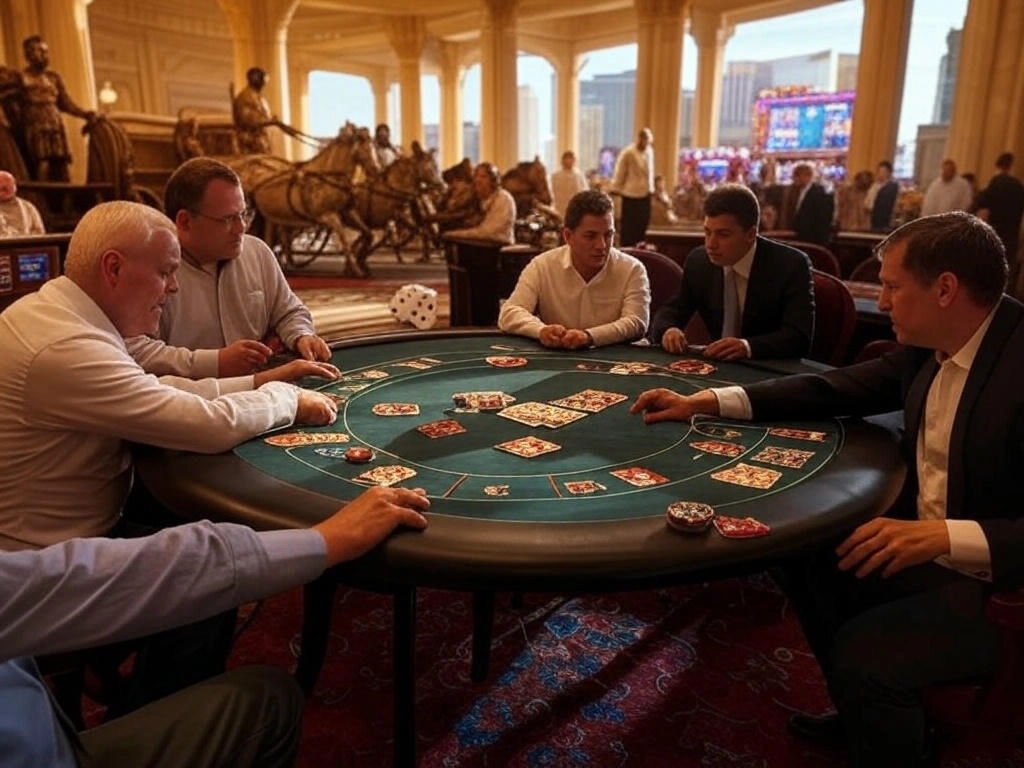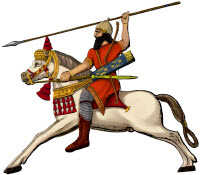|

|
|
|
|
The Tumultuous History of Gambling: From Ancient Dice to Modern Casinos

Gambling, in its myriad forms, has been a cornerstone of human culture for millennia, weaving itself into the fabric of societies across the globe. From rudimentary games of chance played in ancient Mesopotamia to the glittering casino floors of Las Vegas, the act of wagering has been both a source of entertainment and a reflection of humanity’s complex relationship with risk, fate, and fortune. This post explores the fascinating history of gambling, tracing its origins, transformations, and cultural significance through the ages.
The Dawn of Gambling: Ancient Beginnings
The earliest evidence of gambling dates back to around 3000 BCE in Mesopotamia, where archaeologists have unearthed six-sided dice made from bone and ivory. These dice, often inscribed with markings, suggest that games of chance were not merely pastimes but held ritualistic significance, possibly tied to divination practices. Similar artifacts have been found in ancient Egypt, where knucklebones—known as astragali—were tossed to predict outcomes or make decisions, blending chance with spiritual belief.
In ancient China, around 2300 BCE, rudimentary lotteries emerged as a means to fund public works, including, according to legend, sections of the Great Wall. The Chinese game of Keno, with its ticket-based wagering, bears striking resemblance to modern lottery systems, illustrating the timeless appeal of betting on random draws. Meanwhile, in India, texts like the Mahabharata (circa 1000 BCE) depict gambling as a morally fraught activity, with the epic tale of Yudhishthira losing his kingdom in a dice game underscoring its potential for ruin.
Gambling in Classical Civilizations
As civilizations grew more complex, so did their games. In ancient Greece, betting on chariot races and athletic competitions was commonplace, with spectators wagering on outcomes at the Olympic Games. The Greeks also played dice games, though philosophers like Plato criticized gambling as a vice that disrupted social order. Rome took gambling to new heights, with citizens betting on gladiatorial contests, chariot races at the Circus Maximus, and private dice games known as alea. Roman emperors, including Nero and Claudius, were notorious gamblers, yet the state periodically banned gambling to curb its excesses, only to see it flourish underground.
The Roman game of tabula, an ancestor of backgammon, introduced strategy into chance-based play, while soldiers reportedly cast lots for Jesus’ garments during the Crucifixion, a grim testament to gambling’s ubiquity. Despite legal restrictions, gambling dens thrived in Rome’s back alleys, much like illicit card rooms would centuries later.
The Middle Ages: Dice, Cards, and Moral Debates
The fall of Rome did little to dim gambling’s allure. In medieval Europe, dice games remained popular, though the Catholic Church condemned them as tools of the devil. The Crusades introduced new influences, including early card games from the Islamic world, which spread across Europe by the 14th century. Playing cards, with their vivid suits and symbols, revolutionized gambling, giving rise to games like primero and basset, precursors to poker and blackjack.
Royal courts were not immune to gambling’s pull. King Henry VIII of England was an avid gambler, losing vast sums at cards and dice, while his bans on gambling for commoners did little to curb its spread. Across the continent, lotteries reemerged as state-sanctioned enterprises, funding everything from bridges to wars. Venice’s Ridotto, established in 1638, is often cited as the world’s first public casino, offering controlled gambling to the city’s elite under government oversight.
Yet, gambling was not without its detractors. Religious reformers like John Calvin railed against it, and laws oscillated between tolerance and prohibition. Superstitions also began to take hold, with players attributing wins or losses to charms, rituals, or divine favor—a tradition that persists today, as explored in this article on casino superstitions.
The Rise of Modern Gambling: From Saloons to Casinos
The 17th and 18th centuries saw gambling evolve alongside global exploration and trade. In France, the game of roulette—meaning “little wheel”—emerged, its spinning mechanism captivating players with its blend of chance and elegance. Across the Atlantic, colonial America embraced lotteries to fund public institutions, including Harvard University, though card games in taverns often led to brawls and debt.
The 19th century marked a turning point. The Mississippi River became a hotbed for gambling, with riverboat casinos hosting poker games that attracted sharps and suckers alike. The Gold Rush brought gambling halls to California, where miners wagered nuggets on faro and monte. Meanwhile, in Europe, Monte Carlo’s Casino de Monaco, opened in 1863, set the standard for opulent gambling, drawing aristocrats and adventurers to its tables.
However, gambling’s growth sparked backlash. The United States saw waves of anti-gambling sentiment, culminating in widespread bans by the early 20th century. Underground gambling dens and organized crime filled the void, with figures like Bugsy Siegel laying the groundwork for modern casinos. Nevada’s legalization of gambling in 1931 was a game-changer, transforming Las Vegas from a desert outpost into the world’s gambling capital.
The 20th Century and Beyond: A Global Industry
The latter half of the 20th century saw gambling explode into a global industry. Las Vegas reinvented itself with mega-resorts like Caesars Palace and the Bellagio, blending gambling with entertainment and luxury. Atlantic City followed suit in 1976, while Macau surpassed Vegas in revenue by the 2000s, fueled by China’s economic boom. Online gambling, born in the 1990s, revolutionized access, allowing players to wager from home on everything from slots to sports.
Governments worldwide embraced gambling as a revenue source, with state lotteries, tribal casinos, and regulated betting markets proliferating. Yet, the industry faced challenges, from addiction concerns to debates over fairness. Technological advances, like random number generators and blockchain-based platforms, promised transparency but raised new ethical questions.
Gambling’s Cultural Legacy
Throughout history, gambling has mirrored society’s values and tensions. It has funded empires and universities, inspired literature and film, and shaped notions of luck and destiny. From the dice of ancient Sumer to the digital slots of today, it remains a universal impulse, cutting across class, culture, and time.
Yet, gambling is more than a game—it’s a lens into human nature. The rituals and superstitions that accompany it, as detailed in the linked article, reveal our desire to control the uncontrollable. Whether it’s blowing on dice or avoiding the number 13, these practices echo the ancients who saw fate in every roll.
The history of gambling is a saga of innovation, excess, and resilience. It has survived bans, wars, and moral crusades, adapting to every era while retaining its core appeal: the thrill of uncertainty. As we look to the future—be it virtual reality casinos or AI-driven betting platforms—one thing is certain: humanity’s love affair with chance will endure, as timeless as the roll of a die.
Tags: Romans Roman Emperors Ancient Rome Rome Roman History Roman Empire poker casino gambling betting sport Gambling history Casino origins Ancient gambling Games of chance Gambling culture Casino superstitions History of betting Roman gambling Lottery origins Lottery
Kid's Bible Maps
Bible History Online
The Geography of the Bible
© Bible History Online (https://bible-history.com)
Made by Network Local

Kids Bible Maps
About
Us
Contact Us
To
Parents
To
Teachers
Kids Bible Blog
Using Our Maps
Mission
Statement
Doctrinal
Statement
Instructions
Popular Bible Maps
The Journey of Abraham
Moses and the Exodus
Joshua and the Land
The Kingdom of David
The Kingdom of Solomon
Israel in Jesus' Time
Paul's First Journey
The Land of Israel
The Land of Egypt
The Land of Assyria
The Land of Babylon
The Land of Persia
The Land of Greece
The City of Rome
Noah's Ark and Mt. Ararat
The Tower of Babel
The Old Testament World
The New Testament World
Ancient Empires
Moses and the 10 Plagues
Ancient Peoples
The 10 Commandments
The 12 Tribes of Israel
The Ministry of Jesus
Bible Stories with Maps
Daniel in the Lions Den
David and Goliath
Baby Moses
Jesus and the Little Children
Coloring Book Images
Coloring Book
Donkey
Camel
Lamb
Noah's Ark
Noah's 3 Sons
Abraham
Sheep
Lion